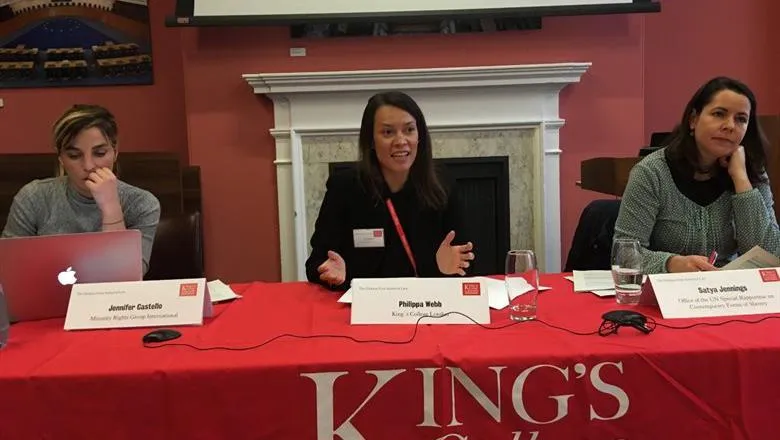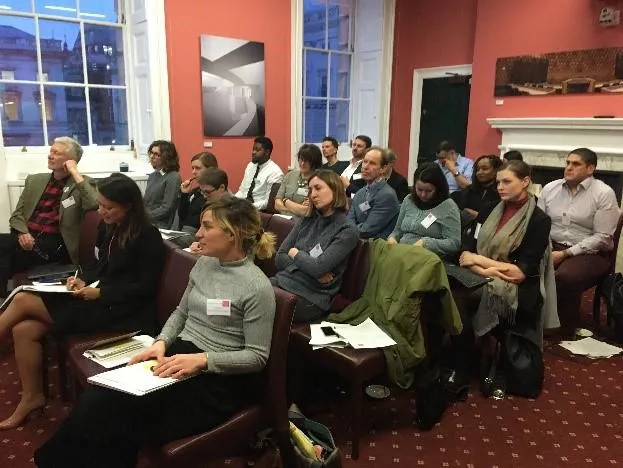06 February 2020
Mauritania and current challenges in the enforcement of its anti-slavery legislation
The challenges of enforcing anti-slavery legislation in Mauritania were explored by leading experts, including how the country’s history of chattel slavery and colonialism may affect the contemporary behaviour of Mauritanian law enforcement and judicial personnel.

Mauritania has committed to work towards the elimination of slavery by 2030 in the Sustainable Development Goals (SDGs) and has adopted domestic legislation that appears to comply with international law. Leading academics in The Dickson Poon School of Law set out that the country faces significant challenges in the enforcement of its anti-slavery legislation with the government denying that slavery exists and at most that only ‘vestiges’ remain.
The workshop, held on 27 January, was part of an ongoing research project which aims to explore how certain biases in law enforcement authorities could be overcome by uncovering and examining that history. The project, funded by King’s Together Seed Funding, is led by Professor Philippa Webb , Dr Maeve Ryan, Dr Rosana Garciandia and Dr Rebekka Friedman, in partnership with Minority Rights Group International.
The workshop presented preliminary findings of the project to experts from the office of the UN Special Rapporteur on Contemporary Forms of Slavery, civil society organizations and academics from diverse backgrounds (law, history, anthropology, literature).
Professor Webb said: “The workshop was a unique opportunity to discuss our ongoing research with an extraordinary group of experts. The discussions on the connection between the history of Mauritania and the current challenges in the enforcement of its anti-slavery legislation will enrich and shape the next steps of the project. The team is planning to host another workshop in the Autumn where a comparative analysis with other countries will be explored.”
This event adds to the list of events that the Law School has recently hosted on projects on slavery-related topics. On 29 November 2019 another workshop was held on assessing modern slavery risks in public procurement supply chains. The event, organized by Plus Alliance partners, King’s College London and the University of South Wales, Australia, with the collaboration of the Business, Human Rights and the Environment Research Group (BHRE) at the University of Greenwich, gathered leading experts from around the world on modern slavery and public procurement to reflect on the existing legal frameworks and the challenges of their implementation. Also related to this workshop, the Centre of European Law of King’s College London hosted a public event on 28 November looking at modern slavery and public procurement from a European Union perspective.
Professor Philippa Webb and Dr Rosana Garciandia have also been chosen to deliver their research, “Modern Slavery: Uncovering and Bridging the Gap” at the British Institute of International and Comparative Law’s International Comparative Law Quarterly (ICLQ) 2020 Annual Lecture. The ICLQ is the top-ranked peer reviewed international law journal, according to journal Citation Reports, and its Annual Lecture, due to take place on 2 March 2020, complements an article published by the ILCQ in its July issue. Click here to register for the lecture.




